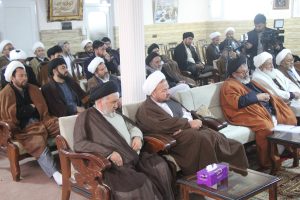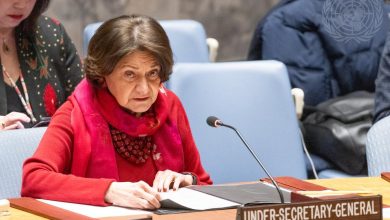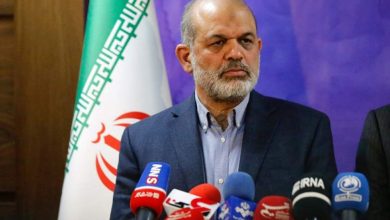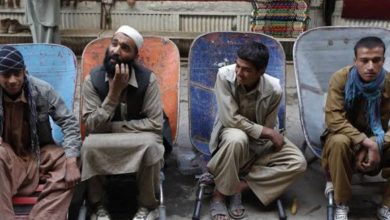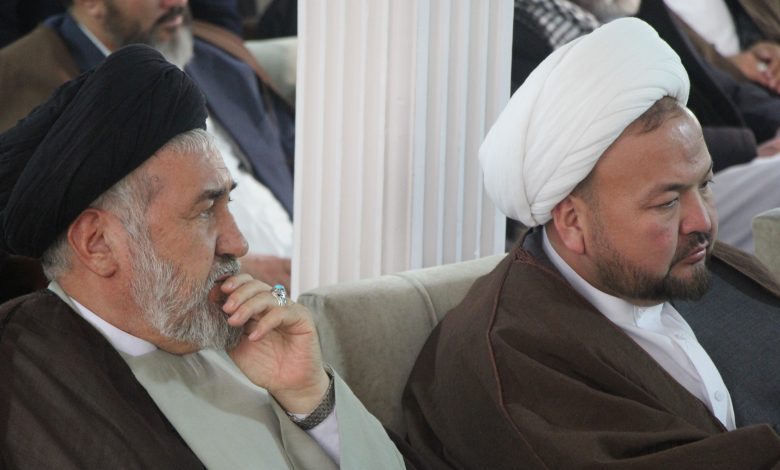
Shia Scholars in Afghanistan to the Taliban: We Will Not Compromise on Our Religious and Political Rights
Bayan News – Some prominent Shia scholars in Afghanistan say they support the interaction of Shias with the Taliban, but they will not compromise on their religious and political demands.
Mohammad Reza Muzaffar, the head of the Shia Promotion Commission, stated on Wednesday (March 26) during a religious ceremony hosted by the Assembly of Ahlulbayt Lovers in Kabul that in the current circumstances, one of the important principles of the Shia community is interaction with the government.
The Assembly of Ahlulbayt Lovers in Kabul held its sixth Ramadan and preachers’ conference with the presence of a group of prominent scholars in Kabul.
He stated, “Our position is that we want interaction. In the current situation, one of the important principles is the interaction of the Shia community with the government. Because there are no minimum political, economic, or social facilities. People are tired of war, and anyone who raises the issue of confrontation is greatly mistaken, but interaction should be accompanied by insight and vigilance.”
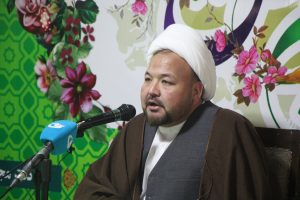
He emphasized that the world cannot ignore Shias, and the Shia issue is not hidden. Influential Shia figures have an impact on the international community, and no one can deny that fact. In Afghanistan, the Taliban also knows that there are roughly 30% Shia population, and it is enough for Shias to believe in themselves.
Mr. Muzaffar clearly stated, “We do not have a basis for war and confrontation. Our basis is interaction, but by no means should they compromise on the political, social, and religious rights of Shias and address them peacefully. When Imam Hasan makes peace, he secures all aspects delicately in the Islamic society.”
He emphasized that the scholars’ demands for the rights of the Shia community do not pose any problems, and there is no danger, and it is the right of the Shia people that the scholars must fulfill.
This prominent Shia scholar also continued by saying that the first branch of Imam Hasan’s approach was servitude and obedience. Worship and servitude are great concepts that define obedience to the Almighty.
At the same time, Sayed Hassan Salehi, a member of the Council for Monitoring the Seminaries in Kabul, stated in his remarks, “If we want our preaching methods to be effective and beneficial, we must choose a model. Imam Hasan had methods in his preaching that if we contemplate and work on each point of his methods without thoughtlessness, undoubtedly our preaching will be effective and blessed.”
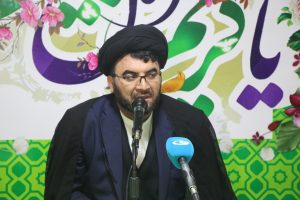
This Shia scholar considered sincerity, ethics, companionship with the poor, and fear of God as the most important preaching methods of Imam Hasan, and he stated that a good preacher must have Islamic ethics and, at the same time, be patient and tolerant. If a preacher is impatient in his religious preaching, he will not achieve results.
He emphasized in his statements that a preacher should not only speak well but also demonstrate it in action.
Meanwhile, Sayed Hussain Alemi Balkhi, the head of the Assembly of Ahlulbayt Lovers in Kabul, stated in his speech, “The most accurate model we should refer to today is Imam Hasan Mujtaba. Considering the conditions we have, our religious authorities, whom we have heard their recommendations time and again, precisely consider the circumstances and follow the behavior, conduct, and wise decisions that Imam Hasan took.”
Balkhi continued in his speech, referring to five fundamental reasons for Imam Hasan’s peace agreement with Muawiyah. He added, “The first factor that led Imam Hasan to make peace was the absence of a strong front consisting of the people of Iraq, especially the people of Kufa, who could support the Imam. According to Balkhi, another significant factor was the lack of consensus among the society at that time. The groups were not coordinated in forming a united force, and at the same time, some tribal leaders who had ties with the ruling authority in Syria declared their support for Muawiyah.”
According to Balkhi, another crucial factor for Imam Hasan’s peace was the weakness and lack of support from 16,000 soldiers and followers of the Imam. He mentioned that Imam Hasan sent 16,000 soldiers to war, but 12,000 of them joined the enemy’s army, and only four thousand remained, which is also recorded in historical accounts.
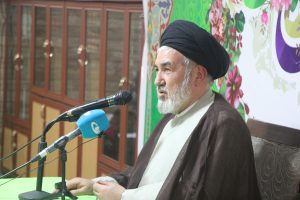
Balkhi further emphasized that Imam Hasan, with his wisdom, realized that if he did not choose peace and did not pursue the path of interaction, it could lead to the complete destruction of the Shia community.
In the end, Balkhi emphasized the need to learn from Imam Hasan and follow the path he has outlined for everyone.
Meanwhile, Mohammad Akbari, the deputy of the Shia Scholars Council of Afghanistan, referred to the peacemaking achievements of Imam Hasan in his speech and stated that if Imam Hasan had chosen war instead of peace, the Shia community would have been destroyed.
Mr. Akbari added that if a threat endangers society, it should be addressed and resolved according to the conditions and understanding.
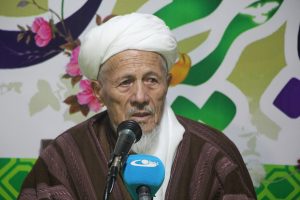
Regarding the recent developments and the fleeing of many personalities from the country in the past two years, the deputy of the Shia Scholars Council of Afghanistan added that the scholars did not forget their people in difficult times and remained alongside them, while they themselves could have left and chosen a peaceful life.
He stated that people should be satisfied with the scholars and emphasized that the Shia scholars of Afghanistan acted responsibly and pursued the path of interaction with the ruling system of Afghanistan alongside the people.
